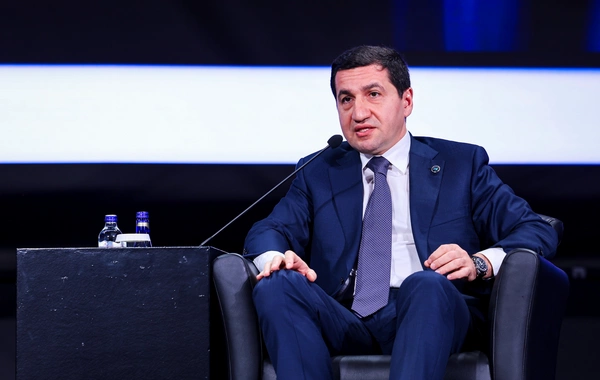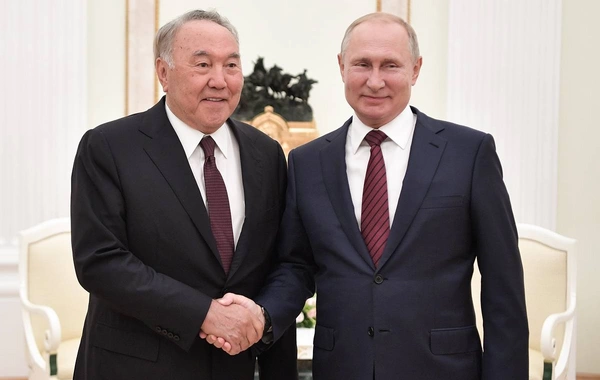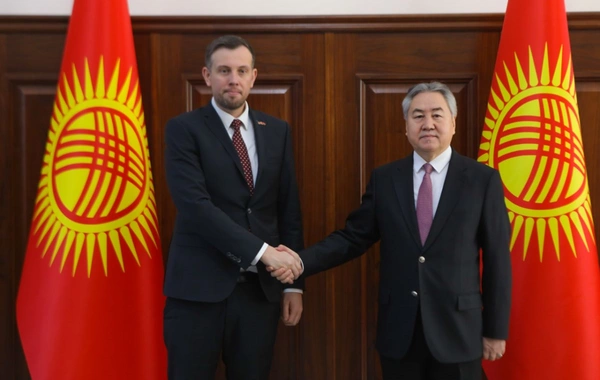
For Türkiye, a peace agreement between Azerbaijan and Armenia is essential for progress. Without a resolution to the longstanding conflict, Türkiye has remained cautious in engaging too closely with Armenia, mindful of its strategic alliance with Azerbaijan.
Armenian PM Nikol Pashinyan and Turkish President Recep Tayyip Erdoğan meet in New York (Photo: RA Prime Minister’s office, September 24, 2024)
The recent shift in Armenia’s foreign policy has sparked renewed optimism regarding the possibility of a peace treaty between Azerbaijan and Armenia. Such a treaty, if realized, would not only stabilize the South Caucasus but also pave the way for Ankara to initiate or enhance diplomatic relations with Yerevan. One of the most significant anticipated outcomes of this normalization would be the opening of the land border between Türkiye and Armenia, closed since 1993 due to Türkiye’s solidarity with Azerbaijan during the first Nagorno-Karabakh war. The reopening of this border could mark a historic milestone, both symbolically and economically, by linking Armenia directly with Türkiye and potentially expanding Armenia's access to global markets.
For Türkiye, a peace agreement between Azerbaijan and Armenia is essential for progress. Without a resolution to the longstanding conflict, Türkiye has remained cautious in engaging too closely with Armenia, mindful of its strategic alliance with Azerbaijan. Azerbaijan’s geopolitical concerns, particularly regarding security and territorial integrity, remain a priority for Türkiye, making a peace agreement a prerequisite for normalization. If Armenia and Azerbaijan succeed in establishing a stable peace, Türkiye can proceed confidently in its own normalization process, with the goal of integrating Armenia into a broader South Caucasus regional system. Such an integration would aim to foster economic interdependence, mitigate historic hostilities, and promote regional stability. This process aligns with Türkiye’s aspirations of becoming a leading power in the region by fostering cooperation among its neighboring countries.
The administration of Armenian Prime Minister Nikol Pashinyan has played a pivotal role in this potential diplomatic breakthrough. By distancing itself from Moscow's direct influence and advocating for a more progressive foreign policy, Pashinyan’s government has signaled a willingness to cooperate more closely with Western and regional partners. This shift has not only encouraged Türkiye but also drawn support from key international stakeholders, including the European Union and the United States, who view the normalization of Türkiye-Armenia relations as an opportunity to strengthen Western influence in the South Caucasus. The EU and U.S. have actively encouraged Ankara to pursue normalized ties with Yerevan, envisioning a “Westport Corridor” that would connect Armenia with Western markets, providing an alternative to its reliance on Russian routes and, ultimately, reducing Moscow's influence over Yerevan.
Economic cooperation between Türkiye and Armenia presents opportunities, albeit modest ones, due to the limited scale of the Armenian economy. While trade could benefit both nations, particularly Türkiye’s eastern provinces, Armenia’s relatively small market limits the overall economic impact on Türkiye. Despite these limitations, Armenia offers Türkiye a strategic opportunity to enhance stability along its eastern border, foster cross-border economic activities, and promote regional tourism. Additionally, the establishment of direct trade routes would further streamline exchanges, as current indirect routes between Armenia and Türkiye pass through Georgia, Russia, and Iran. The improvement of diplomatic ties would therefore facilitate a more efficient and cost-effective exchange of goods and services, providing a modest but positive boost to economic interactions between the two countries.
Nevertheless, Türkiye’s primary focus remains on restoring diplomatic relations with Armenia, with an emphasis on the potential diplomatic, rather than economic, benefits. By pursuing normalization, Ankara aims to strengthen its ties with the European Union and the United States, hoping to reinforce its status as a bridge between East and West. Türkiye envisions that a peaceful and cooperative Armenia, integrated within the regional economic and political framework, could transform the South Caucasus from a zone of conflict to one of collaboration and growth. However, Ankara’s approach requires a highly coordinated, synchronized strategy with Azerbaijan. Türkiye recognizes that any steps toward Armenia must be taken in close alignment with Azerbaijan to avoid jeopardizing the longstanding strategic partnership between the two nations.
Azerbaijan’s policies and outlook are, therefore, integral to Ankara’s decision-making process. For Türkiye, advancing relations with Armenia without Azerbaijan’s support could risk alienating a key ally and undermining its influence in the Caucasus. Thus, Türkiye’s policy is to move in lockstep with Baku, ensuring that any engagement with Armenia reflects a shared vision of peace and security. This synchronized approach underscores Türkiye’s commitment to respecting Azerbaijan’s position and upholding their mutual interests in the region. As both nations seek stability and prosperity in the South Caucasus, Ankara’s strategy is clear: only by securing Azerbaijan’s support and aligning their goals can Türkiye proceed confidently with normalization efforts toward Armenia.
In conclusion, Türkiye’s approach to Armenian normalization hinges on a balanced interplay of diplomatic, economic, and strategic considerations. While economic incentives with Armenia remain relatively limited, the potential diplomatic gains with Western allies and the broader stabilization of the South Caucasus provide compelling reasons for Türkiye to pursue this path. With the support of the European Union and the United States, Türkiye could play a key role in fostering a peaceful and interconnected Caucasus, provided it successfully aligns its moves with Azerbaijan. In this way, Türkiye’s ambitions for regional leadership converge with its longstanding loyalty to Azerbaijan, creating a complex but potentially transformative approach to peace and cooperation in the South Caucasus.
Share on social media





For Türkiye, a peace agreement between Azerbaijan and Armenia is essential for progress. Without a resolution to the longstanding conflict, Türkiye has remained cautious in engaging too closely with Armenia, mindful of its strategic alliance with Azerbaijan.